Submitted by WA Contents
BIG and Barcode Architects built triangular housing block that its cantilevered corner forms gateway
Netherlands Architecture News - Jul 18, 2022 - 12:09 8186 views
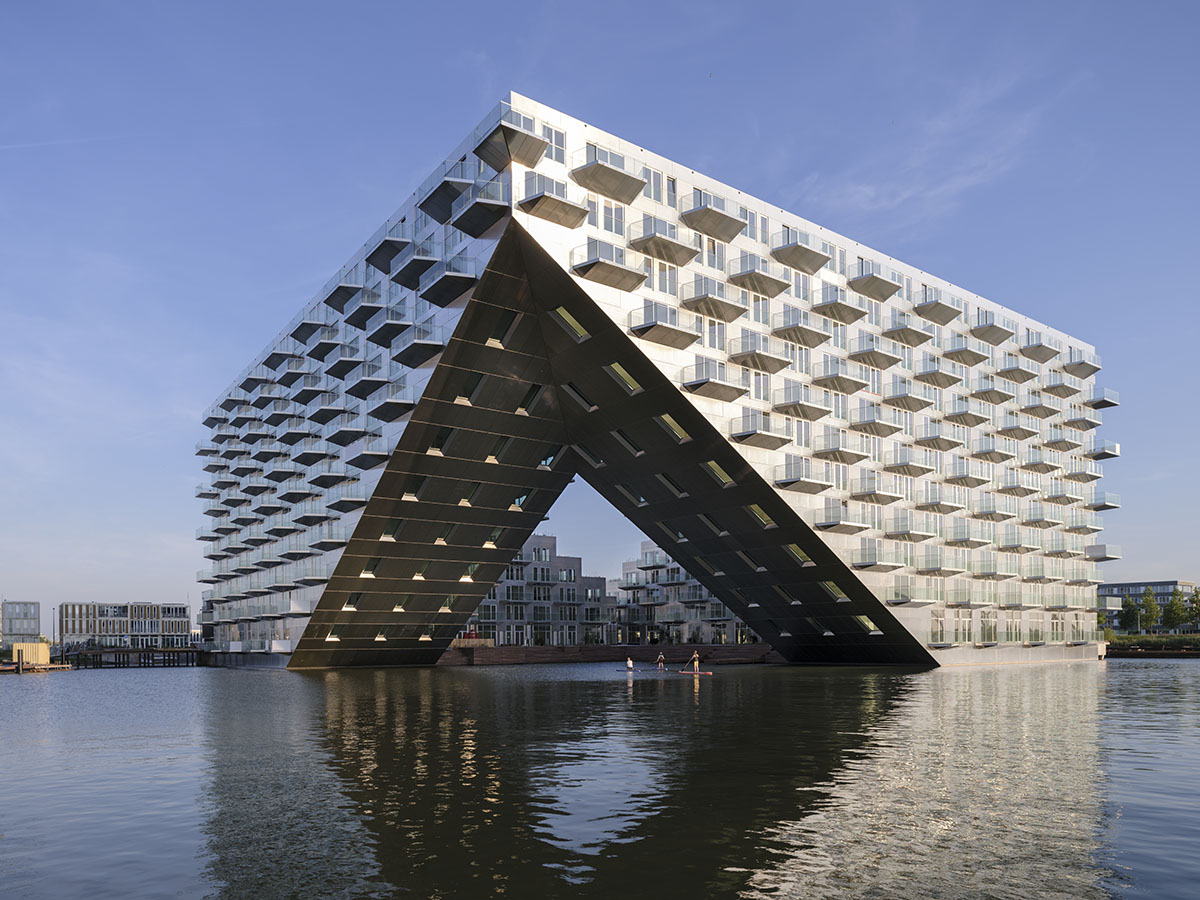
Danish firm BIG and Rotterdam-based practice Barcode Architects have built a triangular housing block that its cantilevered corner forms a gateway over the IJ-lake in Amsterdam's IJburg district in the Netherlands.
Named Sluishuis, the 49,000-square-metre housing block is a new, icon landmark that acts as a bridge between IJburg and the city center with its striking geometric presence hovering the water.
Sluishuis consists of 442 apartments, 234 underground parking spaces, 34 houseboat lots, 54 berths for pleasure crafts, 1,000-square-metre hospitality facilities, 112-square-metre commercial space, shared rooftop garden and shared garden.
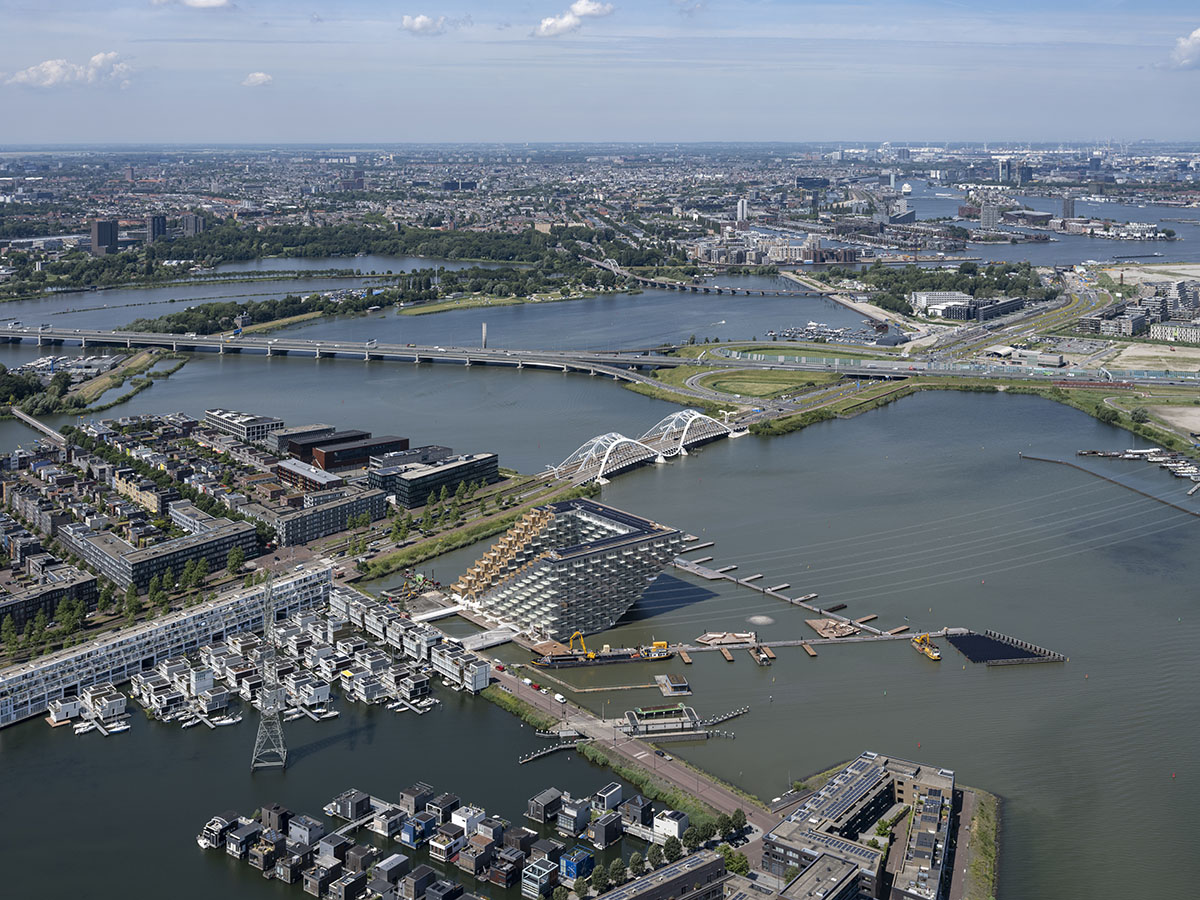
Developed and built by VORM, BESIX Real Estate Development and BESIX Nederland, the housing block is described as a modern and sustainable way of living on and around water by the team.
Presenting a unique volume, the massive block seems like floating on the water thanks to the double cantilever.
"The cantilevers come together in a high corner that forms a large gateway from the IJ to the inner harbor of the building," said BIG and Barcode Architects in a press statement.
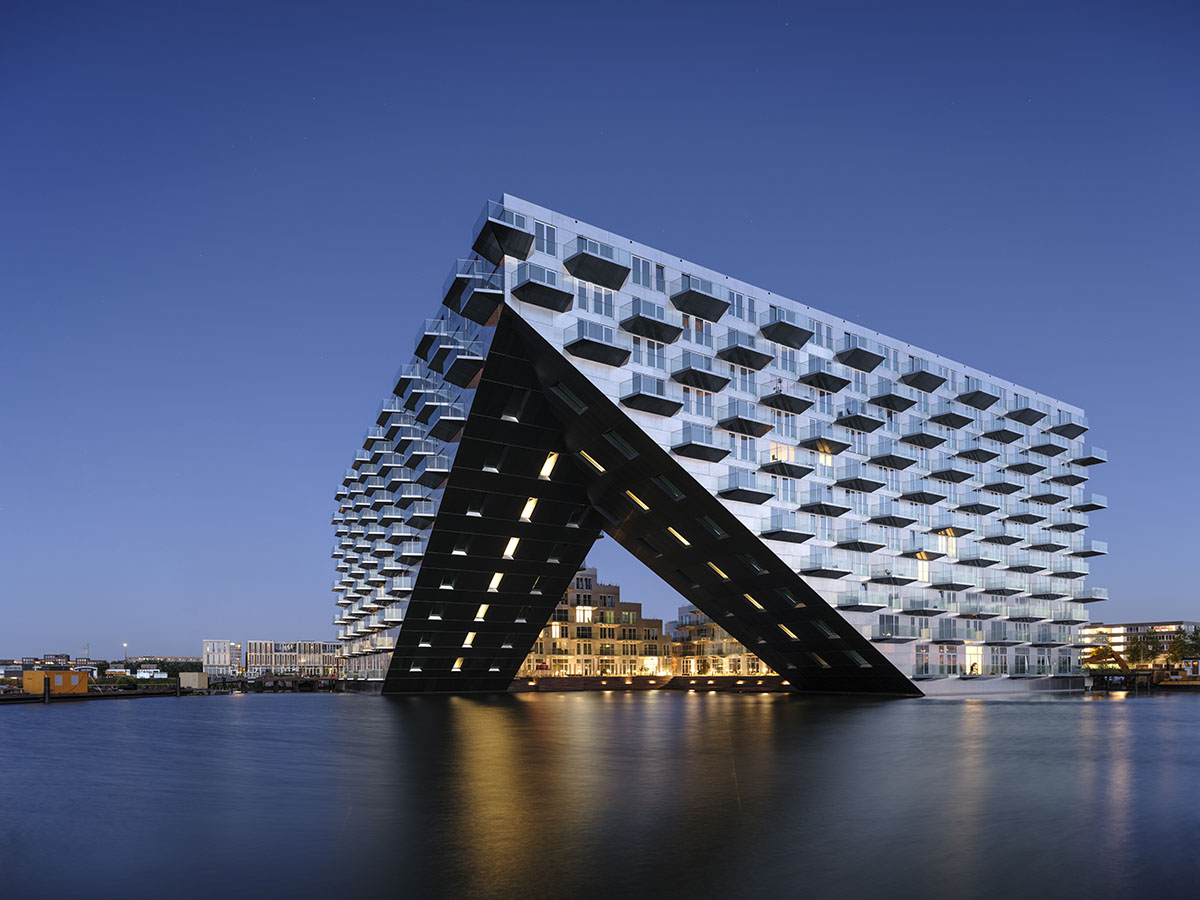
On the other side, the building is complemented with stairs leading towards its rooftop and green, welcoming terraces: an inviting gesture towards the neighborhood of IJburg.
"Having spent my formative years as an architect in The Netherlands at the end of the 20th century, it feels like a homecoming to now get to contribute to the architecture of the city that I have loved and admired for so long," said Bjarke Ingels, founder of BIG.
"With iconic architecture, as well as new housing typologies, high-quality outdoor spaces, and breathtaking views of the IJmeer, Sluishuis is a new landmark for IJburg as well as Amsterdam," said Dirk Peters, Founding Partner at Barcode Architects.
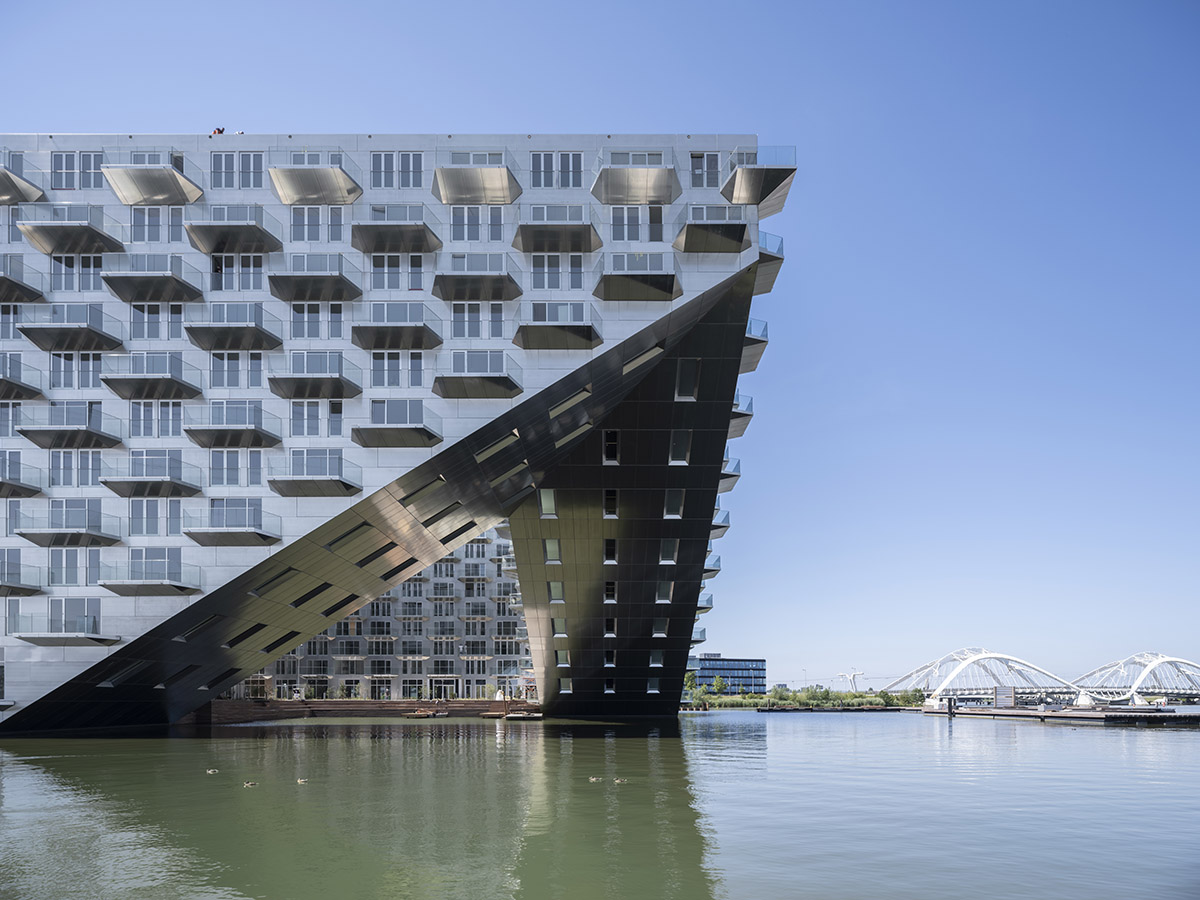
Sluishuis consists of 442 energy-neutral owner-occupied and rental apartments and an offer featuring houseboat lots, jetties for pleasure crafts, hospitality facilities, commercial spaces, and a fully integrated water landscape with islands for recreation, water sports, fauna and flora, and even power generation.
The project is largely publicly accessible and residents and visitors can linger in the inner harbor, enjoy the promenade with stunning rooftop views, and benefit from the jetties and islands, spot water birds or admire the historic houseboats.
The team designed different apartment types targeting a variety of target groups having different income levels, and age categories.
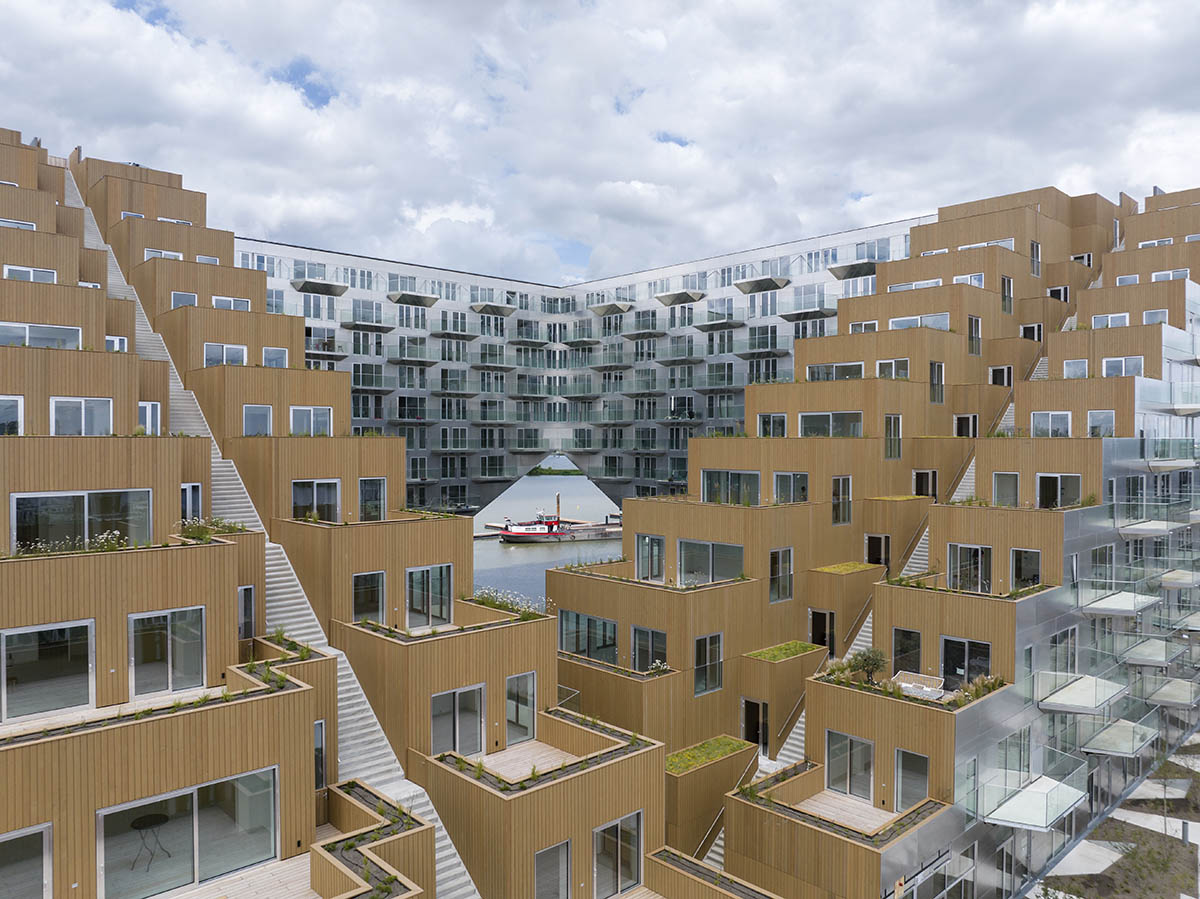
In addition to compact city studios and water sports apartments, Sluishuis features duplex penthouses with views on both the inner harbor and the IJ-lake.
The stepped part of the building comprises premium apartments with luxurious wooden sun-oriented roof terraces with views over IJburg. The apartments at the bottom of the cantilever with splendid views over the IJ-lake are particularly remarkable.
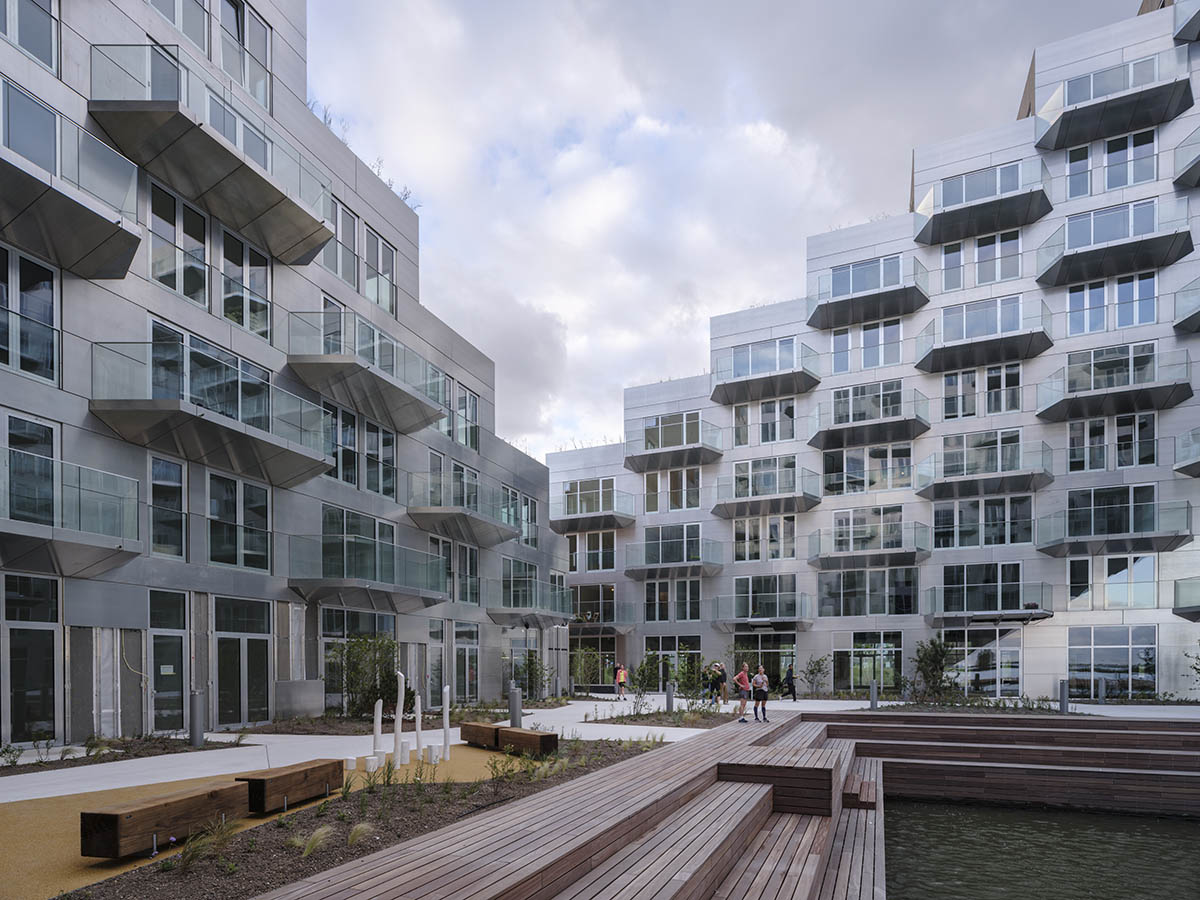
The sustainability principles have become an integral part of the project, according to the team. "Sluishuis is one of the most sustainable buildings recently completed," as described by Barcode Architects.
"With an energy performance coefficient (EPC) of 0.00, the building generates more energy than it consumes," according to the offices.
"The building's heating requirements are minimized by combining high-performance insulation techniques, triple glazing, and heat recovery on the ventilation systems and wastewater."
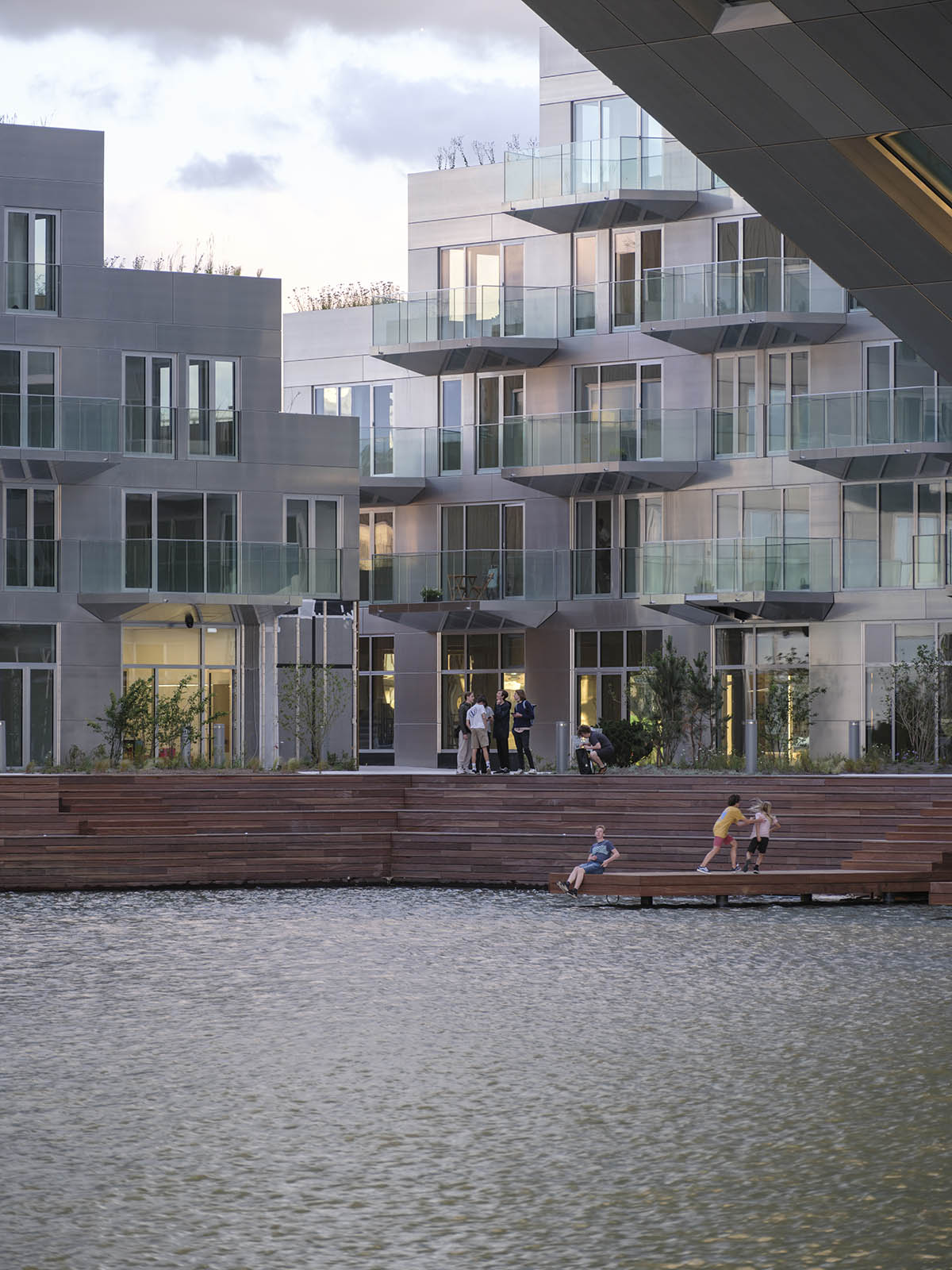
"Energy consumption is further reduced by a heat and cold storage (CHS) system in the ground for heat and cooling in combination with a connection to the district heating system for peak times."
"The remaining energy consumption for heating, heat pumps, ventilation, and LED lighting is fully compensated by approximately 2,200 m2 of solar panels, to which an entire floating island adjacent to the project is dedicated," the team added.
The offices paid much attention to green space and water collection in the building. The front sides and the inner harbor of the building feature gardens with local plant species. The greenery runs across the roof terraces up into integrated planters, creating a pleasant green atmosphere.
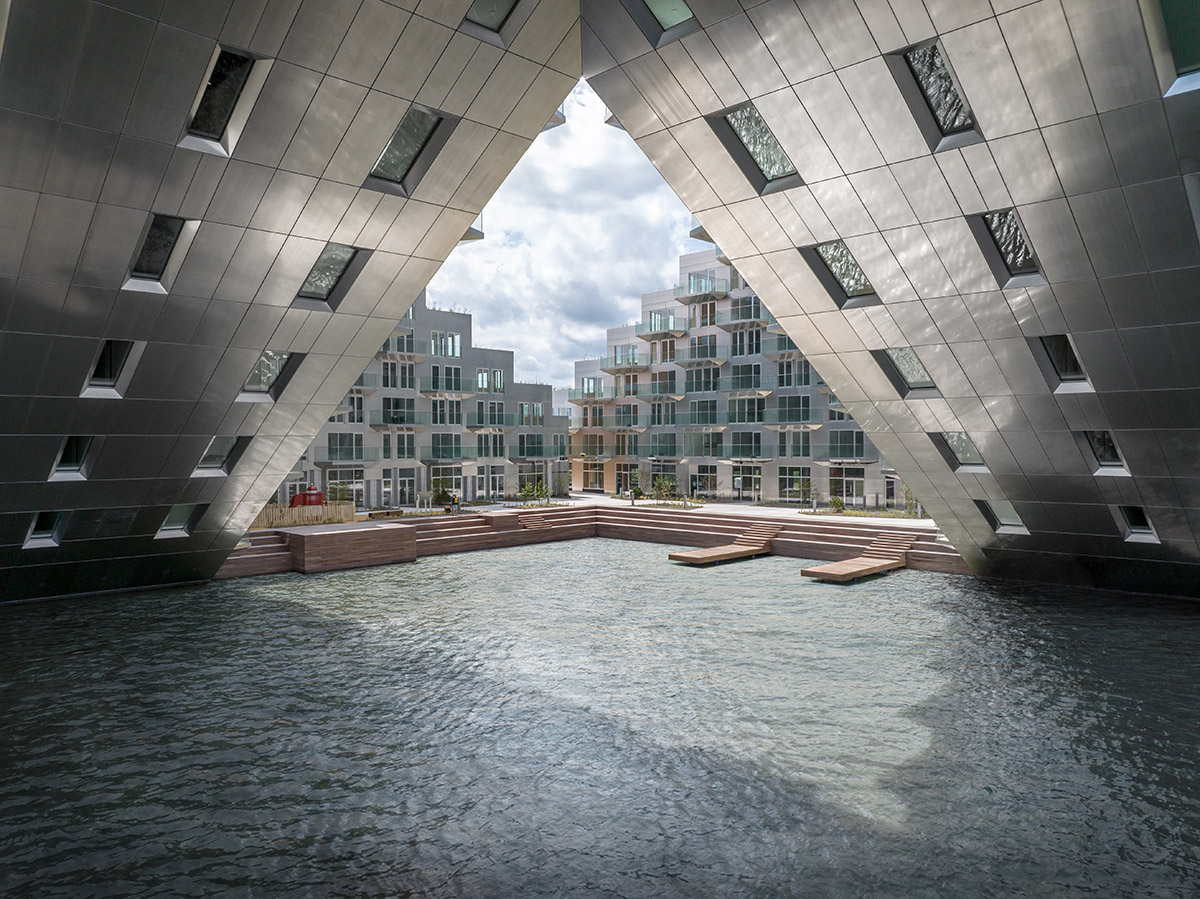
For material choice, the team preferred to use natural materials for their material palette to be able to give the building a rich and natural look over the years.
Using the abstract, untreated aluminum for the facade, the façade reflects the water and gives the volume a different look at any time of day. In contrast, the stepped roof terraces and the jetties landscape are made of wood which gives a tactile appearance. The building’s façade is circular.
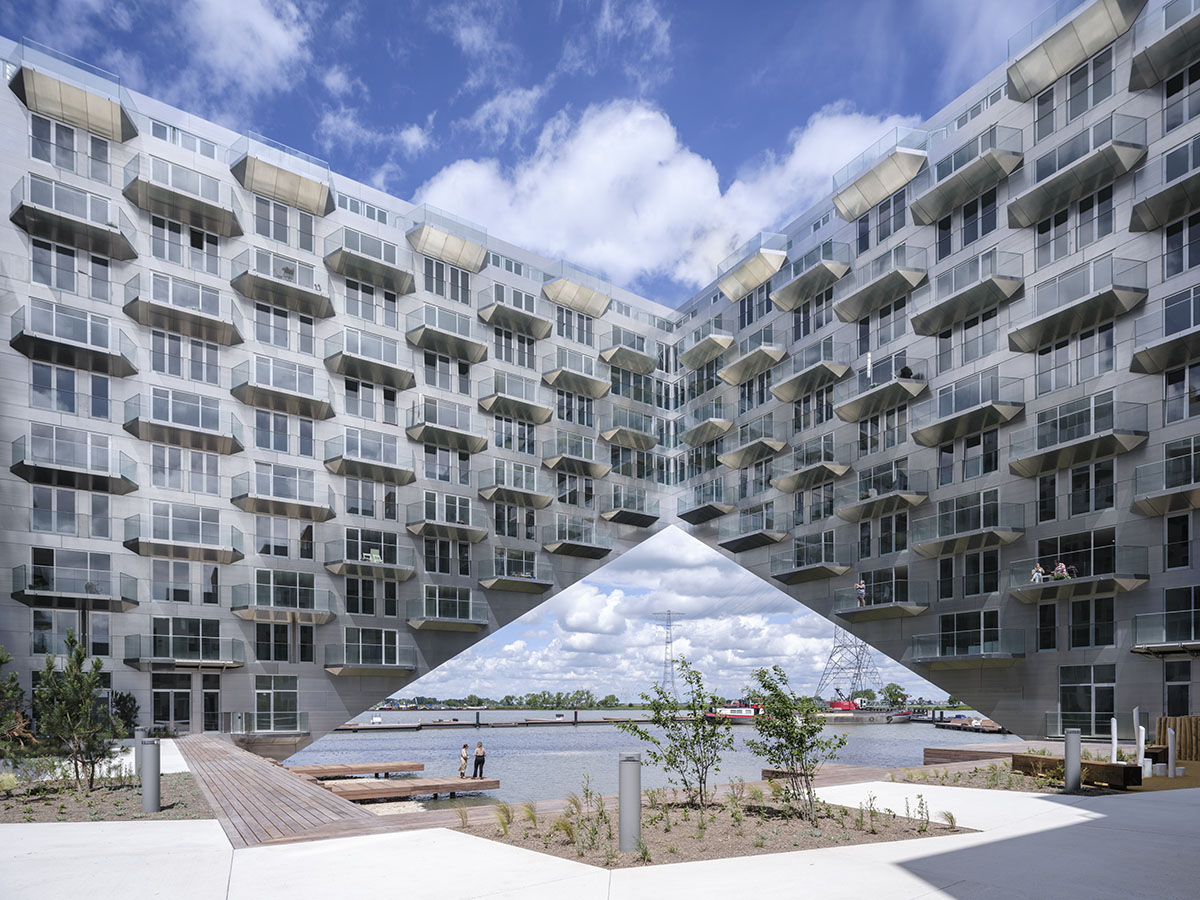
"Thanks to their solid technical expertise, BESIX Group, and partner VORM succeeded in constructing a technically complex project that includes a cantilever construction and a two-story underground parking garage below water level," said Nic De Roeck, Managing Director of BESIX Nederland.
"We won this icon on the water by building a temporary island and have now proudly returned Sluishuis to the water," Nic De Roeck added.
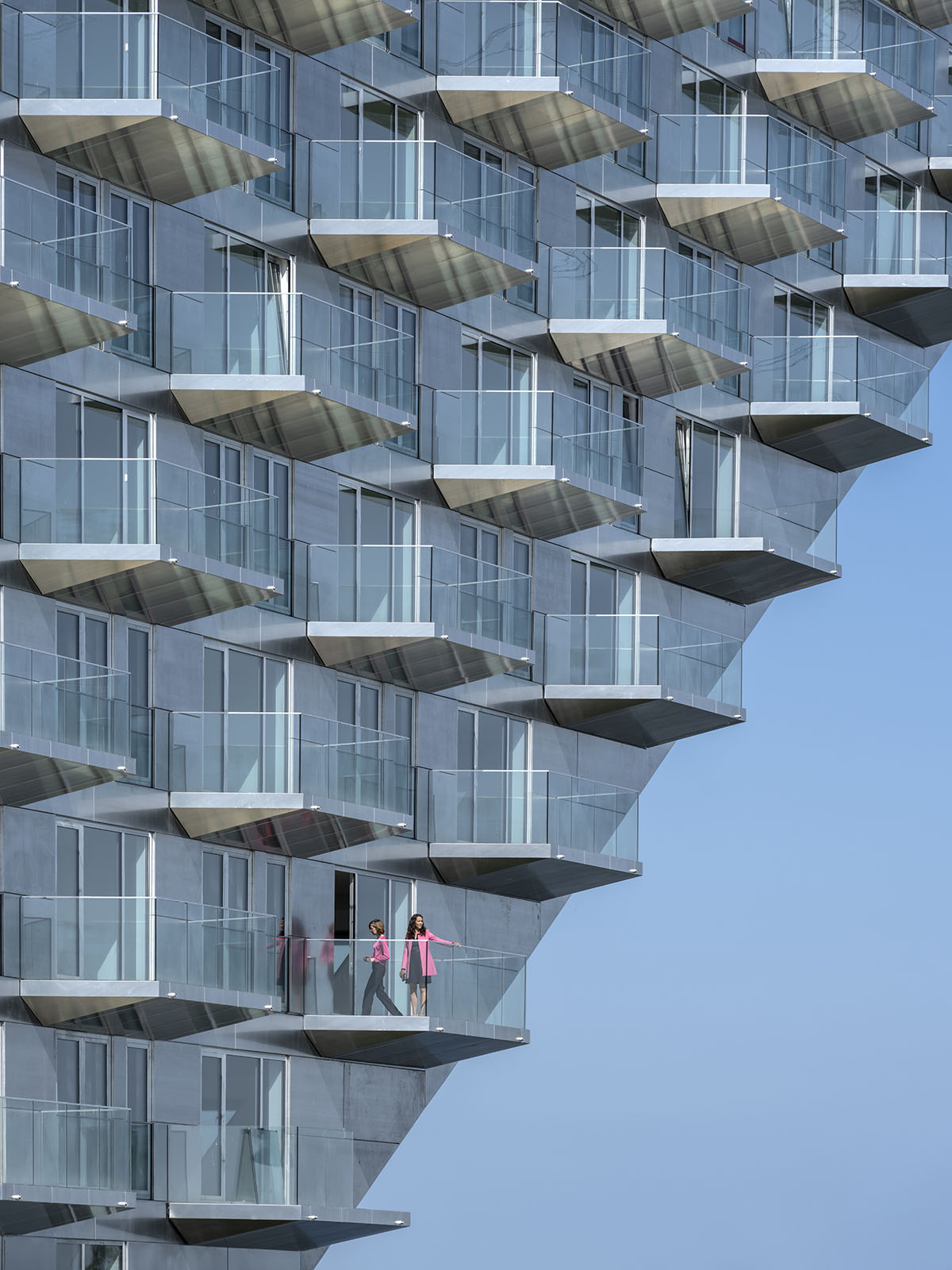
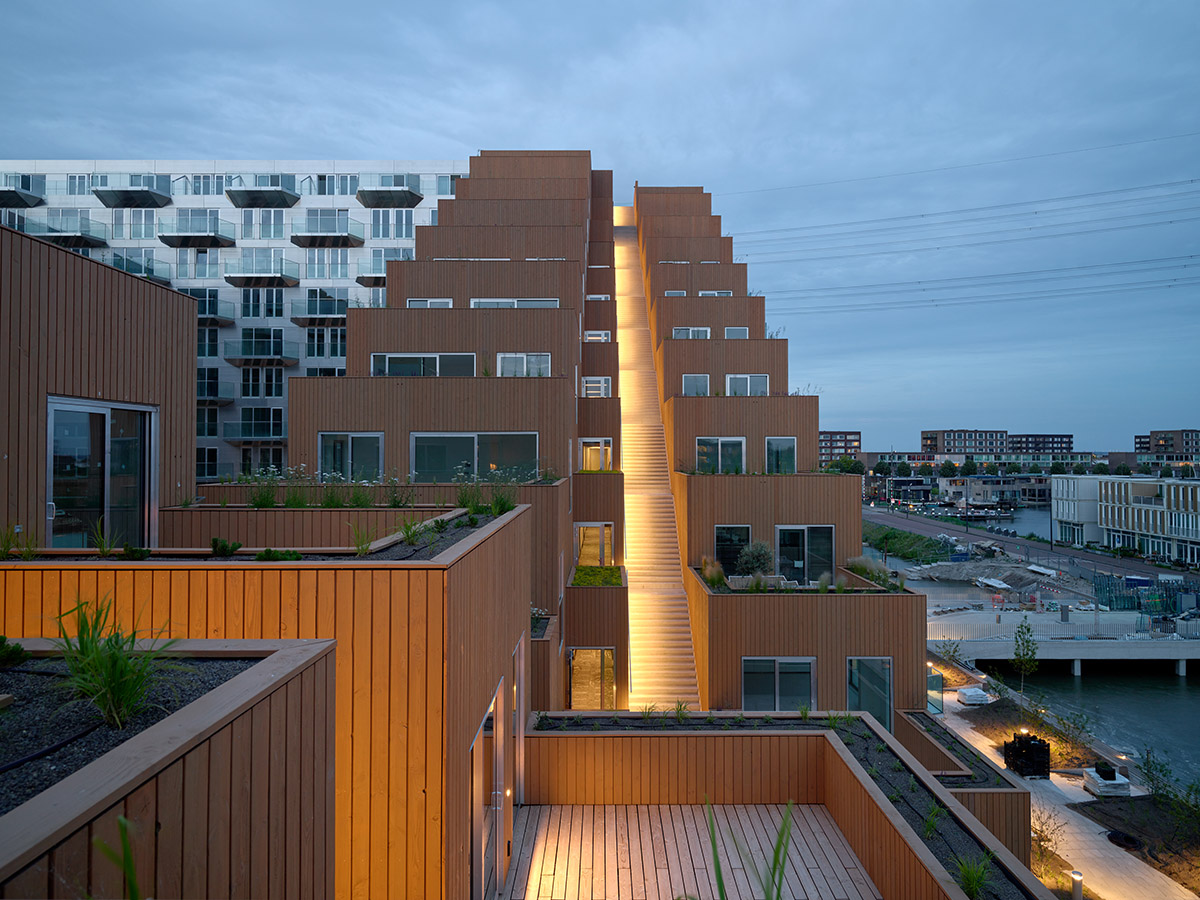
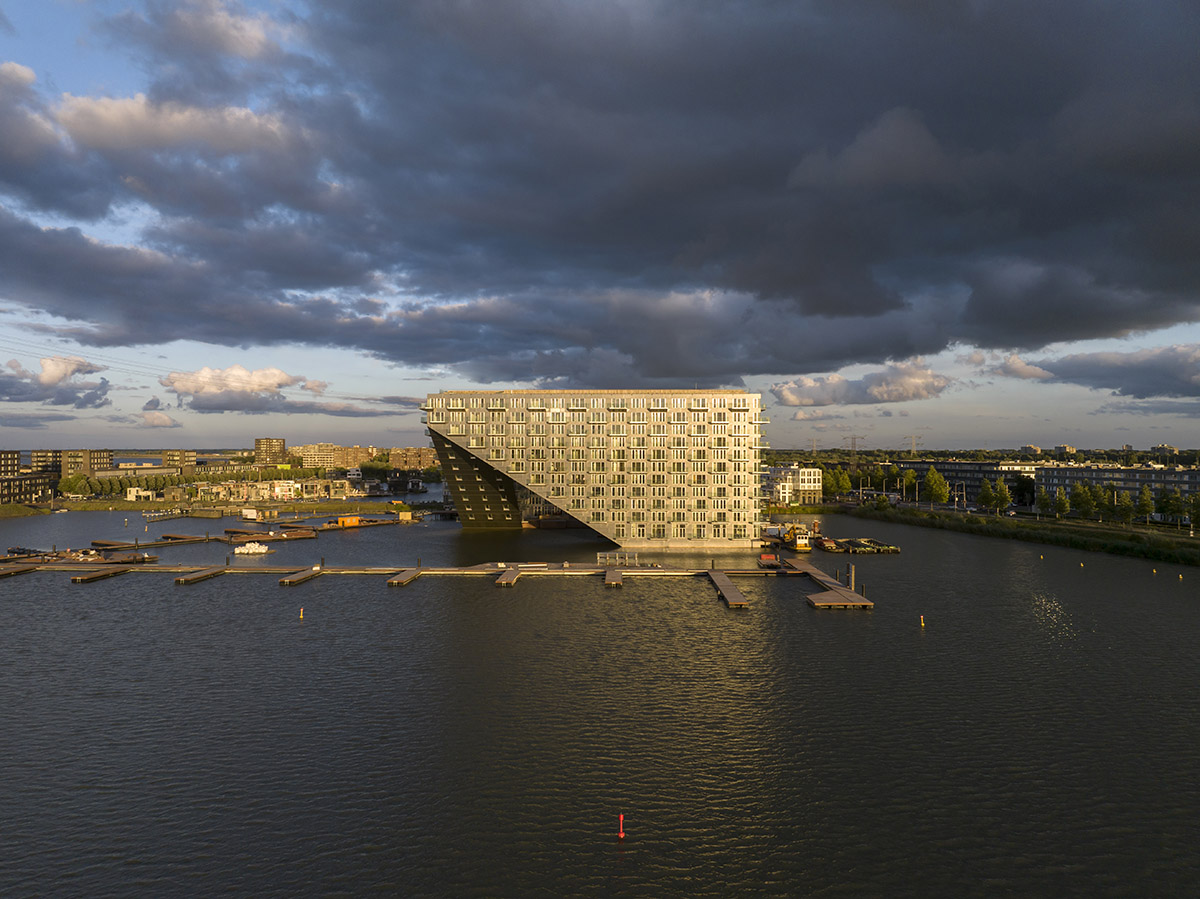
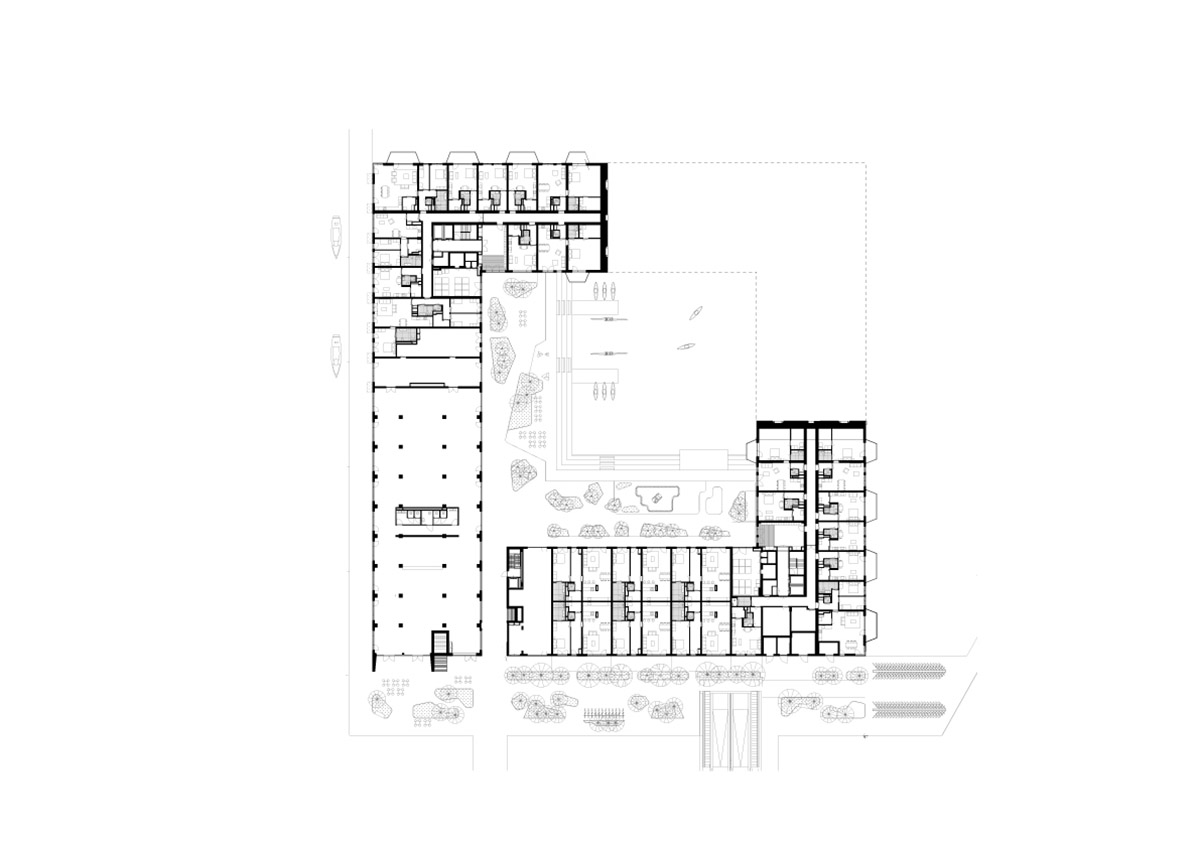
Ground floor plan
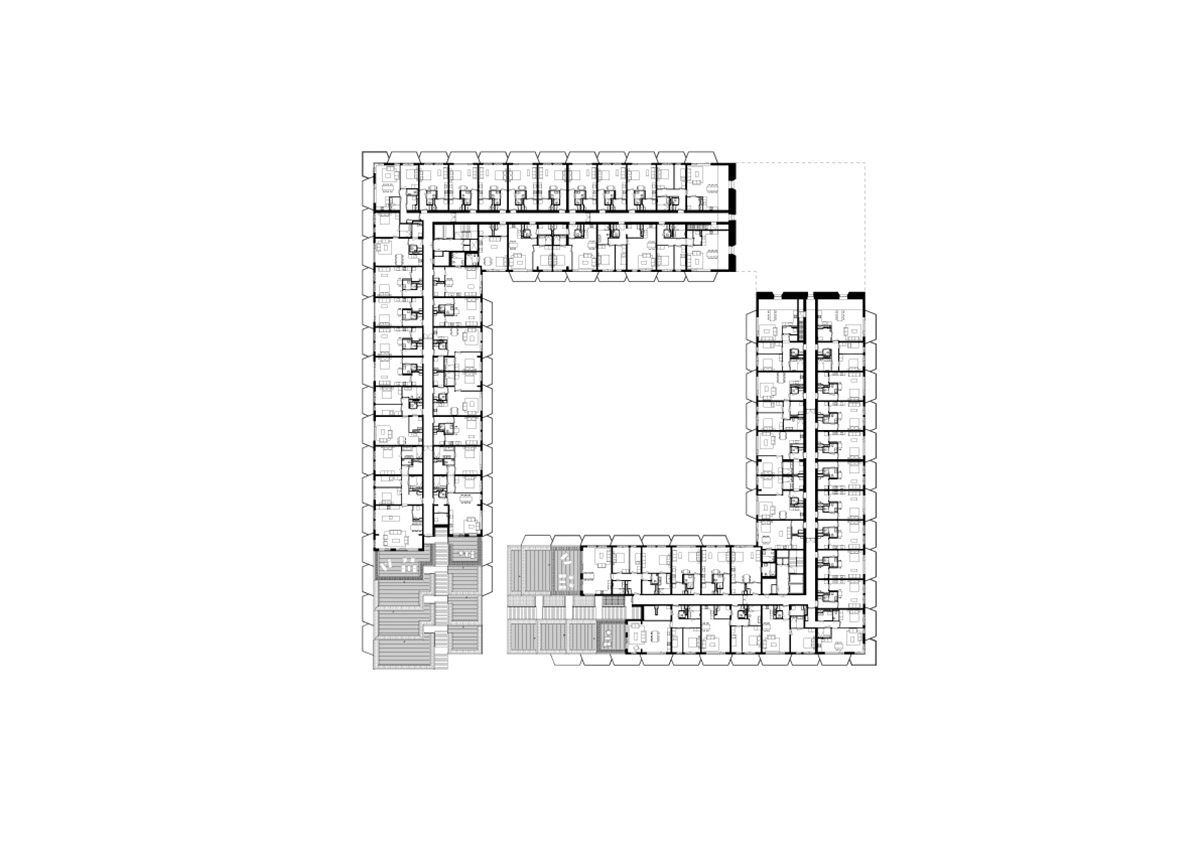
Level four plan
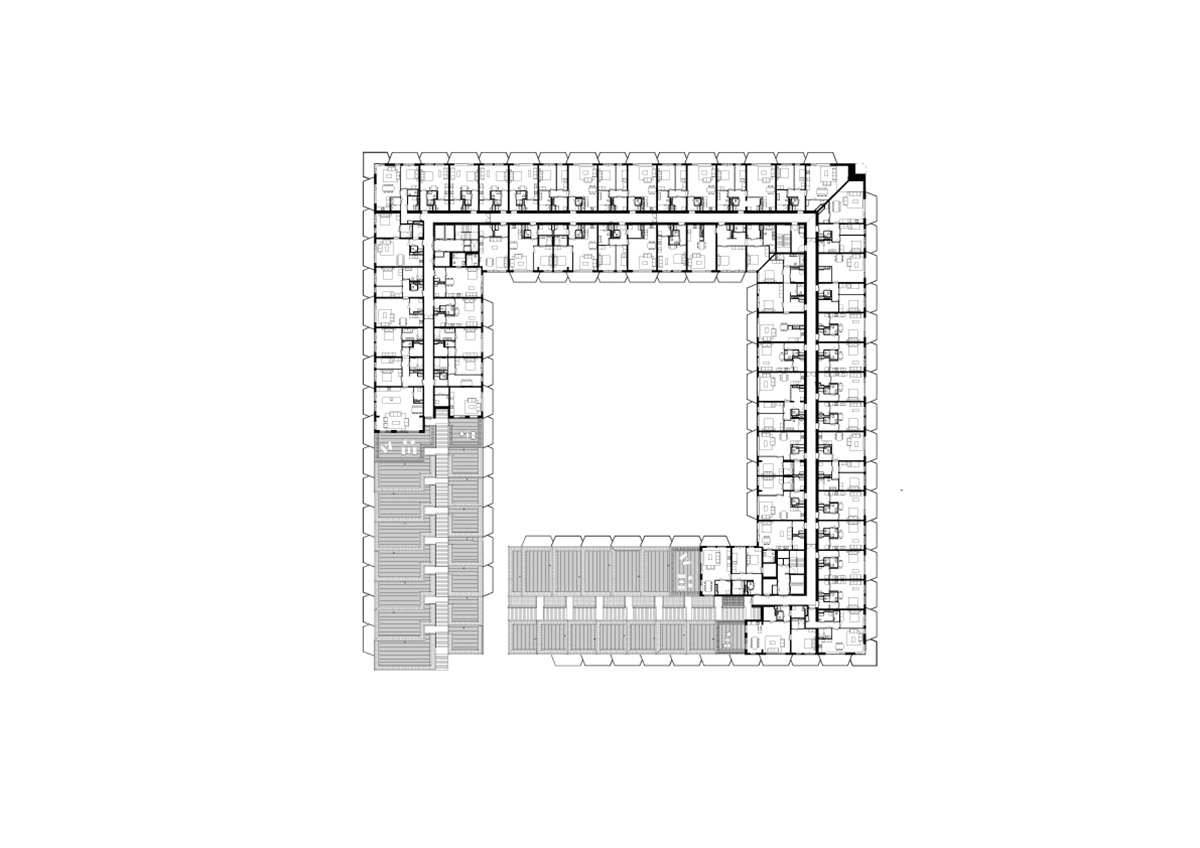
Level eight plan
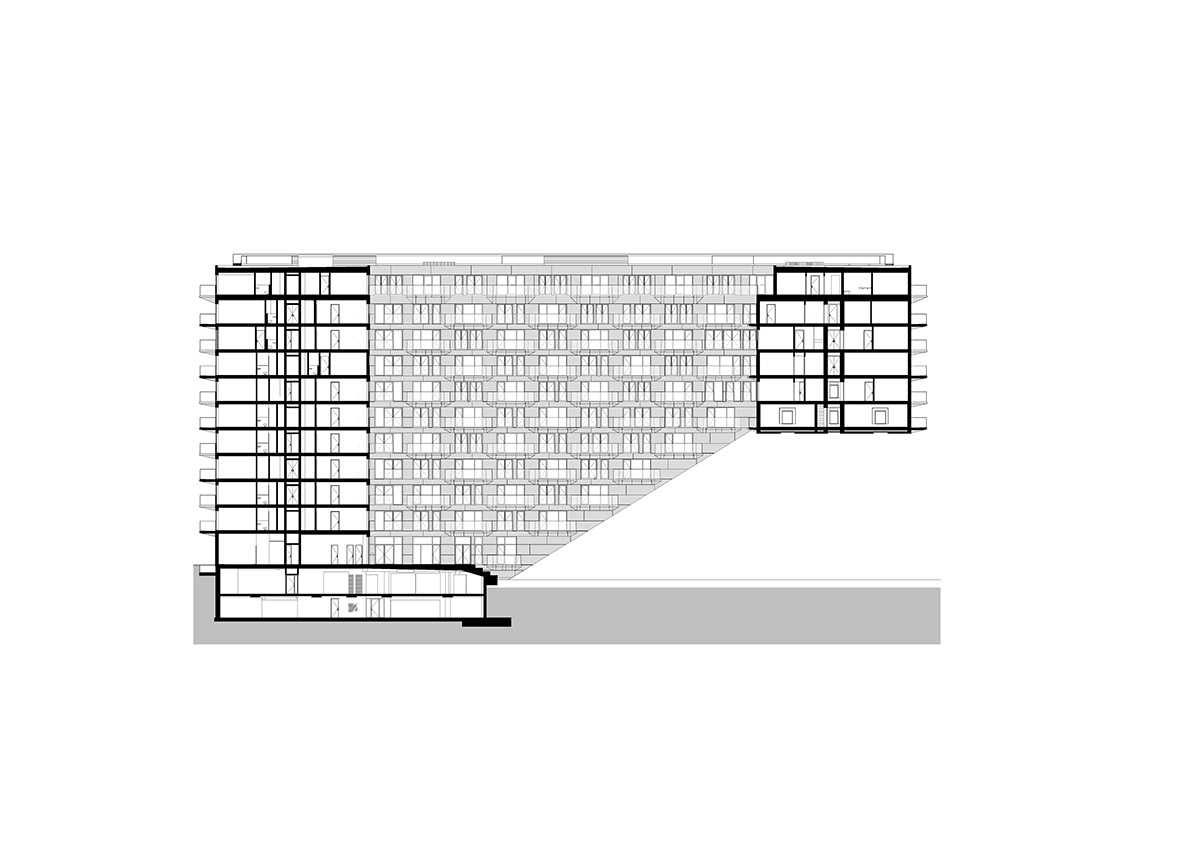
Section
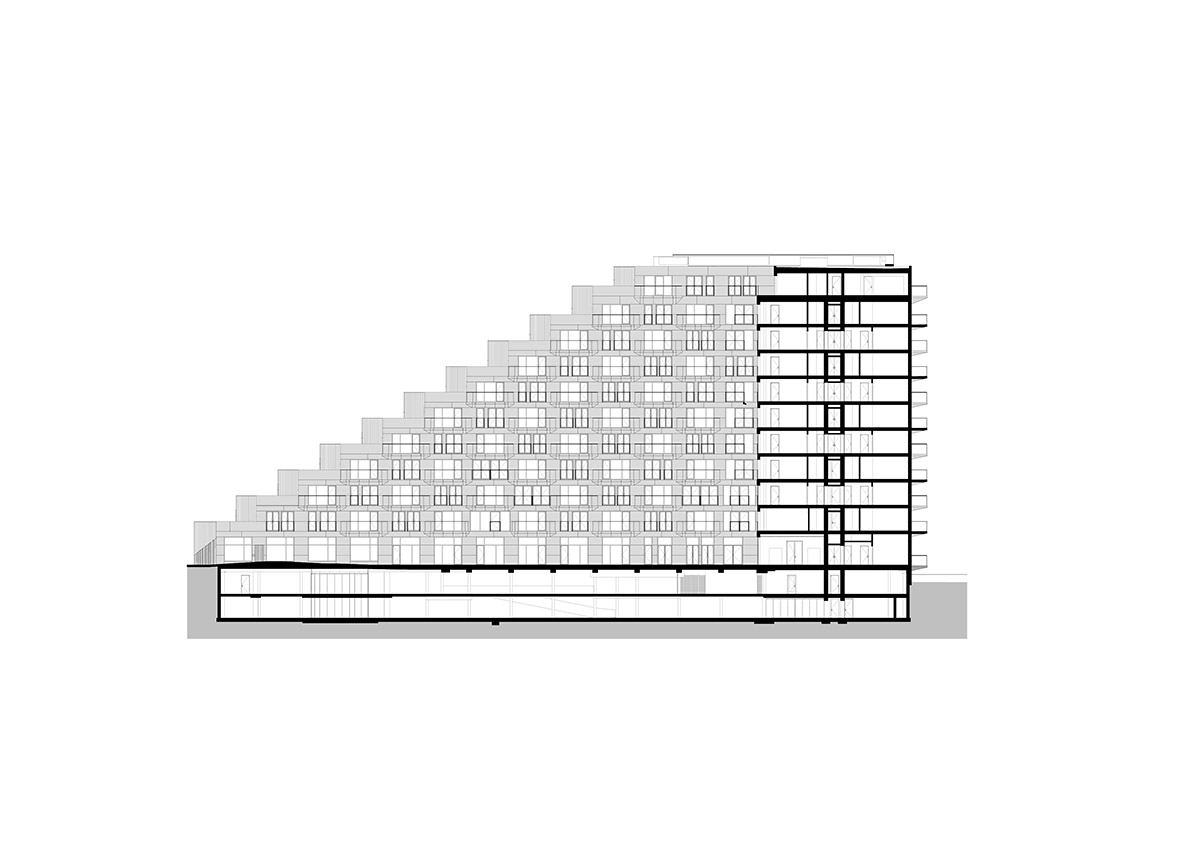
Section
Bjarke Ingels Group (BIG) was founded in 2005 by Bjarke Ingels. Now operating in Copenhagen, New York, London, Barcelona and Shenzhen, the office is one of the world's best known architecture practices.
The office produces a large number of projects throughout Europe, North America, Asia and the Middle East. BIG recently completed a new refugee museum in Denmark and a cross-shaped furniture factory for Vestre in the heart of the Norwegian forest.
Barcode Architects, led by Dirk Peters and Caro van de Venne, consists of architects, urban planners, and technical designers. Recent projects by Barcode Architects include The Muse and CasaNova in Rotterdam, The Robin in Amsterdam, and Dresden City Headquarters in Dresden, Germany and a mixed-use development for PATCHWORK in Sluisbuurt area of Amsterdam.
Project facts
Project name: Sluishuis
Architects: Barcode Architects, Bjarke Ingels Group (BIG)
Location: Haringbuisdijk, 1086 VA Amsterdam
Surface: 49.000 m2 (including the underground parking lot)
Program: 442 apartments, 234 underground parking spaces, 34 houseboat lots, 54 berths for pleasure crafts, 1,000 m2 hospitality facilities, 112 m2 commercial space, shared rooftop garden, shared garden
Commissioner: The Municipality of Amsterdam
Developers: BESIX Real Estate Development and VORM
Contractors: BESIX Nederland and VORM
Year: 2016-2022
Consultants: BIG (landscape architecture), Van Rossum (structural engineer), Buro Bouwfysica (building physics), Klimaatgarant (sustainability), DWA (installations)
All images © Ossip van Duivenbode.
All drawings © Barcode Architects & BIG
> via Barcode Architects
